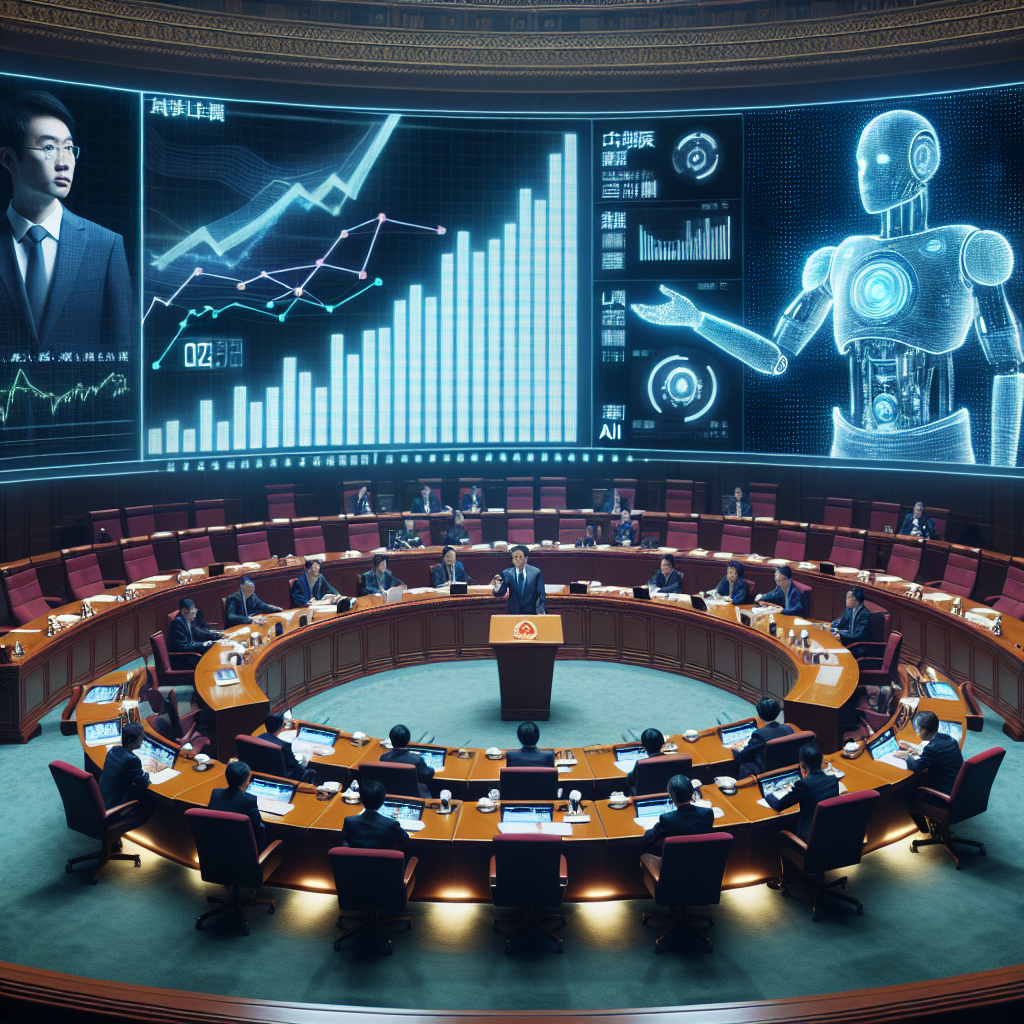China’s Legislature Prioritizes Economy, AI
When China launched its “Open Door” economic reforms back in 1978 under Deng Xiaoping, few could have imagined the incredible transformation that awaited. Today, amid new global challenges and technological shifts, China’s legislature prioritizes economy, AI, and other emerging sectors that could reshape the nation’s socioeconomic trajectory once again.
The Economic Agenda Dominates China’s Legislative Talks
Recently, the annual legislative session of China’s National People’s Congress highlighted the importance of economic stability and growth amid global uncertainties. Recognizing the ongoing issues ranging from slower economic recovery post-pandemic to strategic competition with major economies, Chinese policymakers are determined to rejuvenate growth and stimulate domestic consumption.
Top economic targets for China’s legislature this year include:
- Revitalizing consumer spending: giving citizens incentives and confidence to increase personal consumption.
- Boosting private-sector investments: attracting more enterprises, including SMEs, to stimulate innovation and job creation.
- Enhancing international trade: focusing on diversifying markets and reducing reliance on traditional trade partners.
Artificial Intelligence Emerges as Priority
Alongside economic revival, the rapid development of AI remains a central concern for China’s legislature, underpinning their technology-driven growth ambitions. Recognizing artificial intelligence as a crucial driver for both economic growth and national competitiveness, China continues to invest heavily in AI projects and infrastructure.
Specific areas of AI prioritized during the legislative discussions include:
- Regulatory frameworks and standards for AI ethics and governance: aiming for safe, sustainable, and responsible AI deployment.
- Educational programs and talent pipeline development: fostering a workforce equipped with AI skills and competencies.
- Investment in strategic AI sectors like healthcare, finance, and smart cities: areas designed for immediate economic impact and improving public welfare.
The Importance of Technology Self-Sufficiency
The legislature also put forth plans aimed at achieving greater technology independence, amid increasing tensions between China and Western countries on technology and trade restrictions. The situation has influenced China to devote resources to homegrown technologies, particularly in intensive tech sectors like semiconductors, electric vehicles, and telecommunications. By ensuring self-sufficiency, China aims to insulate itself from global geopolitical risks while accelerating internal innovation.
Environmental and Social Guardrails in Focus
In line with its economic and technological ambitions, the Chinese legislature emphasized the balance of societal progress with ecological conservation and social welfare standards. Proposals and discussions highlighted the importance of sustainable economic growth practices, environmental protection measures, and safeguarding public interests in the era of rapid technological changes.
With a clear directive to engage in sustainable and inclusive growth, policymakers aim to promote initiatives like renewable energy developments, increased scrutiny of social issues, and maintaining labor rights as the economy progresses towards its ambitious growth goals.
Conclusion
The recent session underscores the complexity and balance of policymaking within China’s legislature, as it seeks to manage economic pressures while investing strategically in promising areas like artificial intelligence. As China legislature prioritizes economy, AI, and technological independence, it is clear that China’s leadership has carefully analyzed both the threats and opportunities presented by global economic and geopolitical realities.
This commitment demonstrates China’s intention to position itself strongly for the future—a future increasingly shaped by technology and balanced economic growth. For further reading about global economic policy frameworks, you can check this insightful resource from the World Economic Forum.

